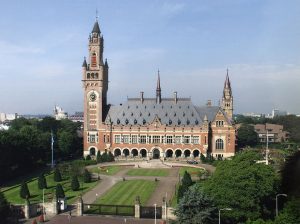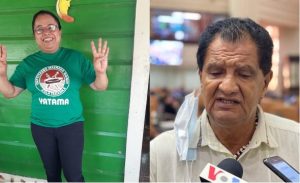By: Rabiya Shamim
Impunity Watch News Staff Writer
THE HAGUE, The Netherlands – On January 26, 2024, the International Court of Justice (ICJ) issued a landmark ruling for provisional measures in South Africa v. Israel, requiring Israel to take “all measures within its power” to prevent acts that could amount to genocide against Palestinians in the Gaza Strip. The ruling did not include a call for a ceasefire.
 |
The case before the ICJ centers on allegations that Israeli forces are committing genocide and ethnic cleansing against the Palestinian population in Gaza. The evidence brought before the court includes multiple instances of indiscriminate strikes, displacement, and destruction of homes and infrastructure, resulting in widespread suffering and loss of life among Palestinians. The court has yet to render a verdict on the occurrence of genocide or determine jurisdiction over the case.
For the provisional measures order, the ICJ had to decide the following:
Prima Facie Jurisdiction: There must be a legitimate reason for the court to have the power to hear the case.
Plausibility of the Claim: The party requesting provisional measures has to demonstrate that the claim is plausible and likely to be successful.
Risk of Irreparable Damage: The parties must show that there is a risk of irreparable harm if the measures are not granted. Irreparable harm refers to harm that cannot be adequately compensated later.
Balance of Convenience or Equities: The court weighs the potential harm to both parties as well as overall fairness.
Urgency: There must be an immediate need to stop harm or maintain the status quo.
As is the practice of the ICJ in contentious proceedings, the Court’s panel of 15 judges was augmented by additional judges from the parties to the case, South Africa and Israel. Aharon Barak, Israel’s judge, and former president of the nation’s Supreme Court supported two of the emergency measures. These measures directed Israel to reduce provocations towards genocide and ensure the entry of aid into the enclave.
In its ruling, the ICJ condemned Israel’s conduct as blatantly violating the Convention on the Prevention and Punishment of the Crime of Genocide (Convention) and demanded prompt action to prevent further atrocities. The Court emphasized that all states are obligated by international law and jus cogens to prevent genocide and hold perpetrators accountable for their actions under international law.
Additionally, the Court ordered Israel to “prevent and punish the direct and public incitement to commit genocide,” and ensure that the enclave receives “humanitarian assistance and urgently needed basic services.” Israel was also ordered to hold onto any evidence pertaining to the allegations of genocide and to provide a report to the court on its compliance with these measures in a month.
Legal experts and human rights advocates have applauded the ruling. However, Israel has indicated that it would not accept all ICJ rulings. The Office of Israeli Prime Minister Benjamin Netanyahu said on X, “nobody will stop us – not The Hague, not the axis of evil, and not anybody else.”
South Africa’s President Cyril Ramaphosa praised the outcome, calling it a “victory for international law, for human rights, and above all for justice.” While South Africa’s Foreign Minister Naledi Pandor stated that her country was “disappointed” that the court had not imposed a ceasefire, she added that she thought Israel would have to abide by the other orders if it was to follow through on them.
For further information, please see:
Al Jazeera – ICJ orders Israel to prevent acts of genocide in Gaza – 26 Jan. 2024.
The Office of Israeli Prime Minister Benjamin Netanyahu – X (Tweet) – 13 Jan. 2024.
UN – Convention on the Prevention and Punishment of the Crime of Genocide – 9 Dec. 1948.



